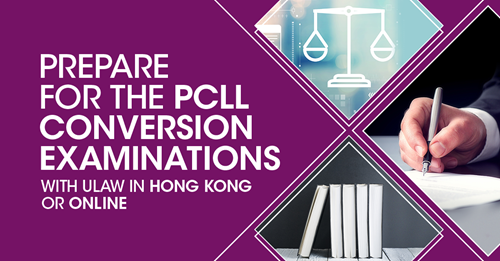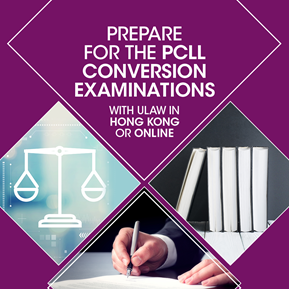
We interviewed Aruna Verma, Associate Professor at The University of Law’s Hong Kong campus. She shared her expert view on how you can join this dynamic scene.
Chambers Student: Firstly, what is your own career background? What steps took you to being Associate Professor at ULaw’s Hong Kong campus?
Aruna Verma: I am a solicitor, I qualified in 2005, predominantly doing litigation work. I began teaching in 2008 as a visiting lecturer while I maintained my practice. I initially taught on the BVC (now BPC) before expanding my teaching into the LPC, GDL and MA Law.
Prior to moving to Hong Kong, I was the Student and Programme Lead at our Moorgate Campus. I knew ULaw were expanding their portfolio, so I was first in line to apply to be the first Programme Director in the Hong Kong Campus.
CS: The University of Law is a UK-originated institution: when and why did the University set up in Hong Kong?
AV: Established in 1876, The University of Law is one of the longest-established specialist providers of the legal education in the UK. With a rich heritage and a reputation for innovation and contemporary teaching practices, we continuously focus on developing the best legal and business minds.
In an increasingly global economy, we take pride in maintaining an international outlook. The legal and business education and training landscape in Hong Kong is growing rapidly. It continues to reflect its English Common Law origins, and legal professional arrangements remain similar to those of England and Wales, leading to exciting opportunities for cross-qualification in both jurisdictions.
“We are providing a truly international experience to all our students.”
We focus exclusively on practice-based training aligned to the current demands of the profession, with qualified and experienced business professional, solicitors, barristers and judges as our tutors. The tutors bring invaluable real-life experience into the classroom, helping our students to stand out in the job market. It is this excellence in teaching that we are excited to bring to our Hong Kong Campus.
We back up our teaching with our extensive Employability and Careers Service, offering information, advice, practical experience and links to the profession from the moment a student joins the University. We have built up strong links with law firms here in Hong Kong and have worked with 90 out of 100 global law firms. We are providing a truly international experience to all our students.
 Learn more about the ULaw Hong Kong courses.
Learn more about the ULaw Hong Kong courses.
CS: What courses do you offer to graduates and undergraduates, and which are the most heavily subscribed?
AV: Students are able to choose from a wide range of undergraduate and postgraduate courses in both law and business. Our Hong Kong Campus started receiving students in September 2019, initially offering a portfolio of face-to-face courses including the GDL, MA Law and a suite of LLM Legal Practice programmes.
From 2021 onwards, we have expanded our programme portfolio to offer undergraduate and postgraduate courses in law and business, via both online and face-to-face deliveries. Courses include LLB (Hons), LLB (Hons) Law with Criminology, LLB (Hons) Law with International Business, Graduate LLB (Hons)*, PCLL Conversion Examinations Preparatory Course (PPC), Master of Laws (LLMs)*, BA (Hons) Business Management and MSc Strategic Business Management.
We will also be offering Postgraduate Diploma in Law (PGDL), MSc Cyber Security and Data Governance, MSc Global Accounting, BA (Hons) Business Management with Law, BA (Hons) Business Management (Marketing), BSc (Hons) Accounting and Finance and BSc (Hons) International Business Management from January 2021 onwards. These programmes are currently under registration.
We also provide additional professional courses and online training courses to practising legal professionals.
[* = pending registration]
CS: Who are your students? Are they mainly local to Hong Kong or do you see high numbers from further afield? Is this a popular course for UK or US graduates making a transfer into the Hong Kong market?
AV: The majority of our students are from Hong Kong, but our GDL programme is a popular course for UK and US law graduates to make a transfer into the Hong Kong market. Our GDL programme can be completed in as quick as nine months, whereas the Juris Doctor [US qualification] takes around two years. As the US is under the non-common law system, JD graduates from the US will need to take our GDL programme.
CS: Focusing on the PCLL Conversion Examinations Preparatory Course (PPC), what are the learning objectives?
AV: I moved to Hong Kong and was excited not only to build a presence in the region but to also to start a new course. It has been so mesmerising to see this idea develop into a full programme.
Our PPC is designed to prepare students or graduates who either hold an LLB, GDL, MA Law or the Common Professional Examination (CPE) to undertake the necessary PCLL conversion examinations for admission into the Postgraduate Certificate in Laws (PCLL) in Hong Kong.
“…we also have a dedicated online course, with live seminars delivered at UK-friendly times during weekends.”
Our programme is designed with two objectives in mind: to provide candidates with the content and knowledge for the exam – including comprehensive manuals for each subject – and to focus on writing skills and exam techniques in a series of intensive seminars taking place right before the PCLL conversion examinations.
Compared with a traditional law course, our PPC programme offers fewer lectures and more small-group seminars, with detailed individualised feedback on daily writing exercises. In addition to that, we also have a dedicated online course,, with live seminars delivered at UK-friendly times during weekends.
CS: How is the PPC course structured and delivered?
AV: Teaching is focused on writing techniques and exam methodology. All our workshops are based on past exam papers, with students receiving individual detailed feedback on each paper written.
Per module there is a total of 20 hours of lectures and face-to-face or live streamed time to practise, evaluate, and assess your writing and exam skills – although there are ten hours for Commercial Law Part C.
Online options are available and delivered through our state-of-the-art learning platform.
Each module is offered twice a year; our calendar follows that of the PCLL conversion examinations, with each module running from August to December (for the January PCLL conversion examinations) and from February to June (for the June PCLL conversion examinations).
Each module gradually accelerates and concludes with intensive writing workshops right before the exams. This allows our students to focus on their other obligations during the semester, and to dedicate more time to their PCLL conversion examinations in the few weeks and months immediately preceding the exams.
“The student response has been overwhelmingly positive.”
Flexible study is available, which involves pre-recorded online lectures that students can watch at their own pace. This is followed by attendance at face-to-face or live-streamed writing workshops, feedback sessions, and intensive workshops.
CS: What have been the opportunities or limitations for teaching methods during the pandemic? How have students responded to these measures?
AV: The pandemic hit Hong Kong in early 2020. Determined not to disrupt the students’ learning, I worked tirelessly to ensure all my lecturers were trained to deliver through our online platform, literally overnight.
We kept the timetable the same and notified the students of the change of delivery mode. The student response has been overwhelmingly positive. In times of uncertainty it is important to keep stability as much as possible. There was no delay in getting our workshops and lectures delivered and preparing all our examinations and marking online.
CS: How do you tailor the learning towards the Hong Kong commercial legal market?
AV: We have many extra-curricular activities and opportunities our students get involved in, for example the mentoring scheme which I launched in Hong Kong when I moved here. Our students also entered the commercial awareness challenge which is run at the University of Law.
There are many employability initiatives students can get involved with. We have the speaker series where high-profile speakers come and share on topics. We work closely with firms, organisations, solicitors and barristers in Hong Kong.
CS: What do you think makes Hong Kong a uniquely attractive jurisdiction to qualify into?
AV: Hong Kong is a world hub for commerce and finance with over 900 law firms, making it an ideal location to study and launch a career in law.In an increasingly global economy, and we take pride in maintaining an international outlook. We have a network of ULaw alumni working in Hong Kong who have been very engaged with us since we launched the Hong Kong campus.
The legal and business education and training landscape in Hong Kong is growing rapidly. It continues to reflect its English Common Law origins, and legal professional arrangements remain similar to those of England and Wales, which leads to exciting opportunities for cross-qualification in both jurisdictions.
CS: For the international students reading, what are the unique challenges of building a career in Hong Kong?
AV: We welcome international students to study with us at our Hong Kong Campus. However, international students who hold foreign passports will need a permanent residency in order to become practising lawyers in Hong Kong. Foreign nationals will need to stay in Hong Kong for a continuous seven-year period in order to qualify for permanent residency.
CS: The IELTS makes sure applicants have strong English, but can you get very far without an understanding of Cantonese in Hong Kong?
AV: You can indeed.Hong Kong is known as an international hub with English as a second language used in Hong Kong. It would be a bonus to understand and speak Cantonese. However, students can also develop and expand their careers in Hong Kong without knowing Cantonese. I have been taking online Cantonese classes and been able to practise with my current students in class!
CS: Typically, what kind of roles do your PCLL students move into after qualification? What kind of law firms or other graduate opportunities?
AV: They become solicitors or barristers, or pursue careers in other positions in the legal industry. Otherwise they go into business and work in corporate positions. And some go into teaching in universities and schools.
 The University of Law is one of the leading providers of legal and professional services education in the UK with campuses across the UK, in Berlin and Hong Kong. Learn more about their Hong Kong courses>>
The University of Law is one of the leading providers of legal and professional services education in the UK with campuses across the UK, in Berlin and Hong Kong. Learn more about their Hong Kong courses>>